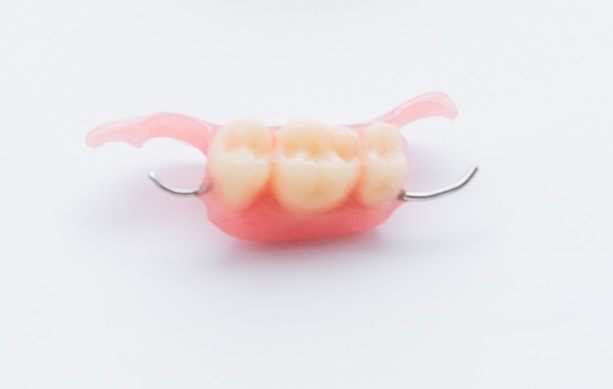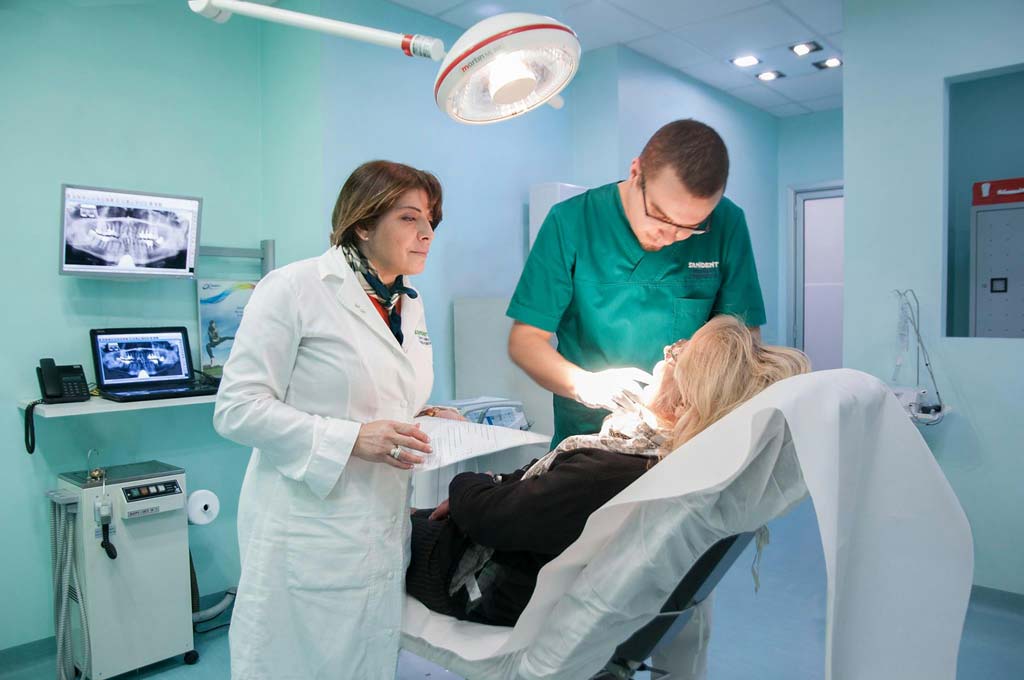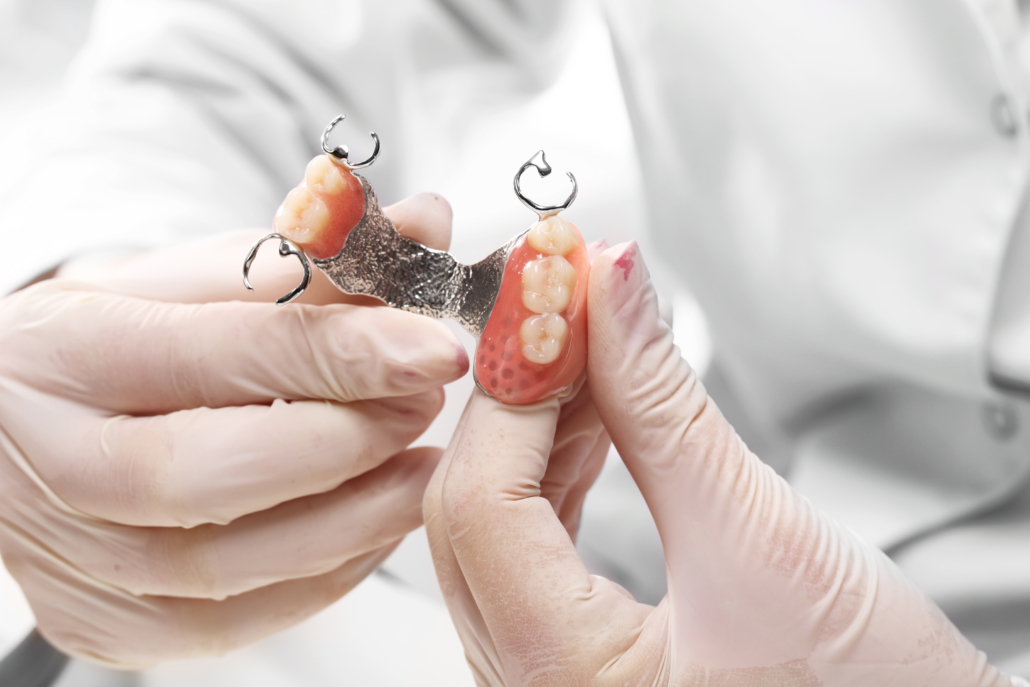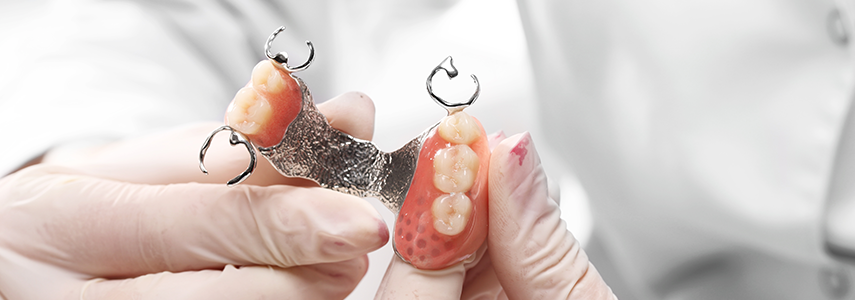For some clinical cases, the solution to tooth loss is the application of removable partial dentures.
In fact, not all patients are inclined to undergo an implant surgery, for different reasons, some for specific risks and contraindications, others because they are dental phobic and still others for purely economic reasons.
Removable partial dentures and bacterial plaque
Removable partial prostheses, commonly called dentures, are dental devices that do not require surgery, they are mobile prostheses that allow oral rehabilitation at low cost.

Unlike implantology that allows you to get back fixed teeth thanks to the insertion of implants inside the jaw bone, removable prostheses are, as by their definition, mobile prostheses and therefore are positioned and removed from the oral cavity by the patient himself.
The possibility of removing the denture and its mobility within the oral cavity leads to a greater probability of accumulating bacterial plaque.
The accumulation of plaque and tartar inside the oral cavity is extremely damaging to the periodontium of the adjacent teeth.
Removable dentures and danger to adjacent teeth
The results of a clinical study were published in the European Journal of Dentistry in which the consequences of the presence of removable removable prostheses on the condition of the periodontal ligament of adjacent teeth were evaluated.
The clinical study compared the state of health of the teeth supporting the removable prosthesis with the other teeth present in the arch.

107 patients with removable partial prostheses were analyzed for a total of 138 prostheses, of which 87 with hooks and 51 with attachments.
The clinical information considered for the evaluation was:
- bacterial plaque index;
- tartar index;
- bleeding;
- depth of the periodontal pocket;
- mobility of the teeth.
Patient data were collected before insertion of the removable partial dentures and 3 months after insertion of the prosthesis.
Results of the evaluation
Before the application of the removable partial dentures, the overall health of the oral cavity was quite homogeneous. All the parameters used for the evaluation were almost similar.
After the first month from the insertion of the removable prosthesis, the bacterial plaque index increased on the teeth supporting the denture.

After three months on the teeth supporting the mobile prosthesis, the tartar index and the depth of the periodontal pocket also increased.
Importance of oral hygiene for patients with removable partial dentures
The data collected during the clinical study revealed the need for greater care in oral hygiene by patients with dentures.
Added to this is also the advice of periodic dental visits for monitoring the health of the oral cavity and planning a deep cleaning at least four times over a year.
Following the dentist’s advice after inserting a removable prosthesis helps to avoid damage to the periodontal ligament caused by the accumulation of plaque and tartar and the loss of additional teeth.
















